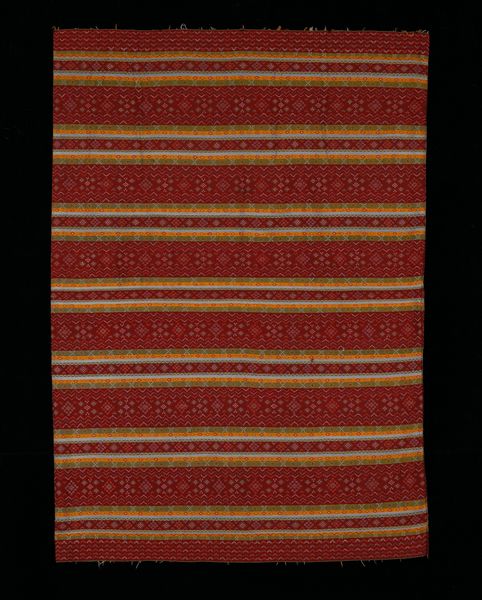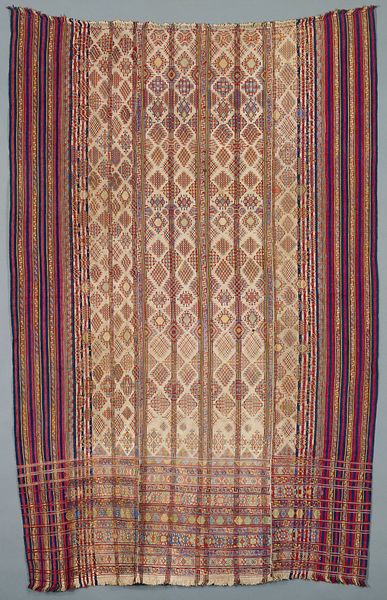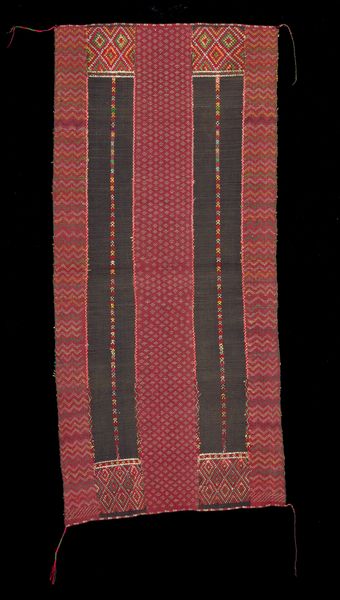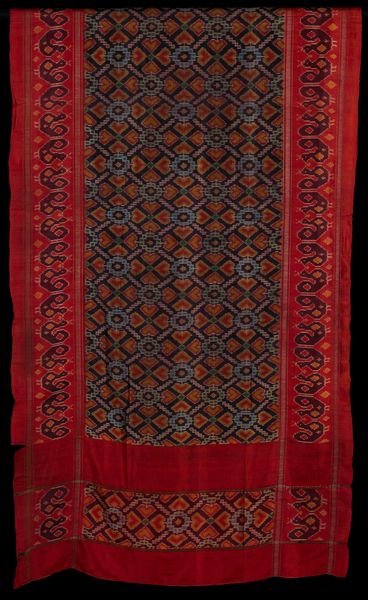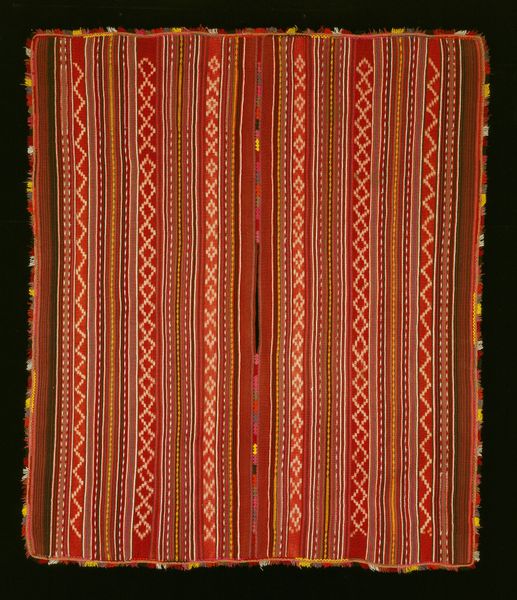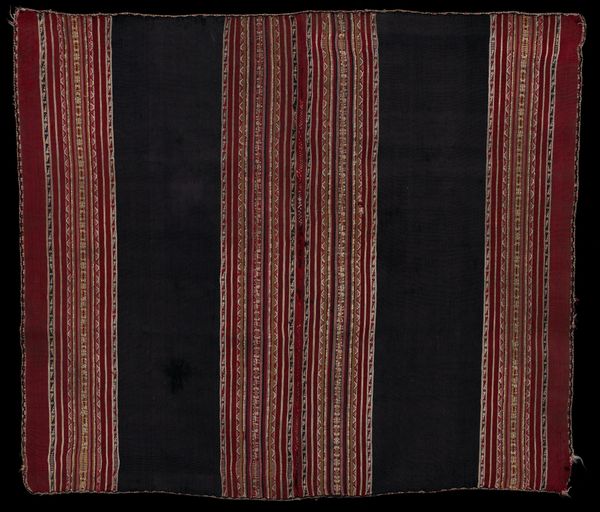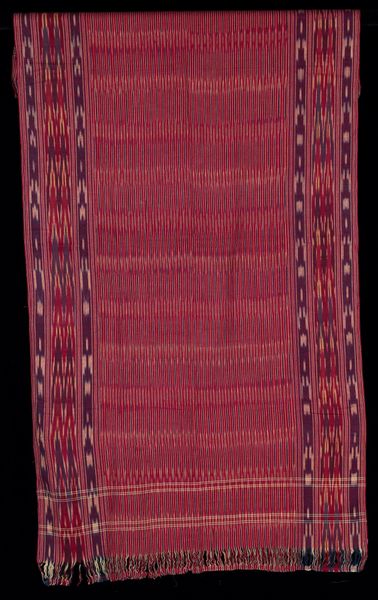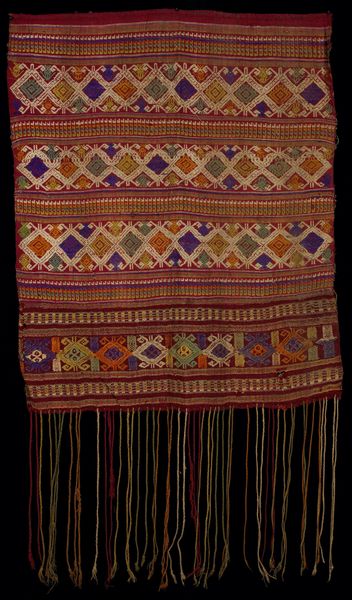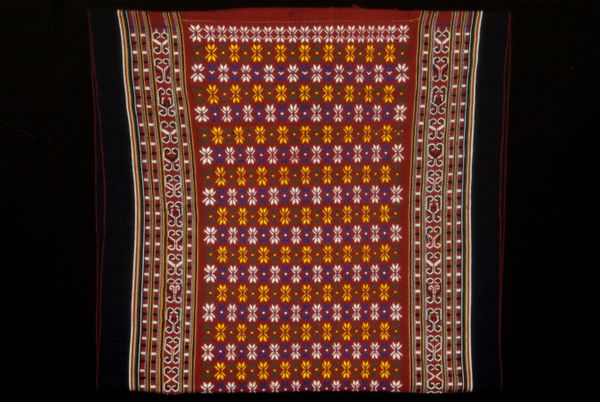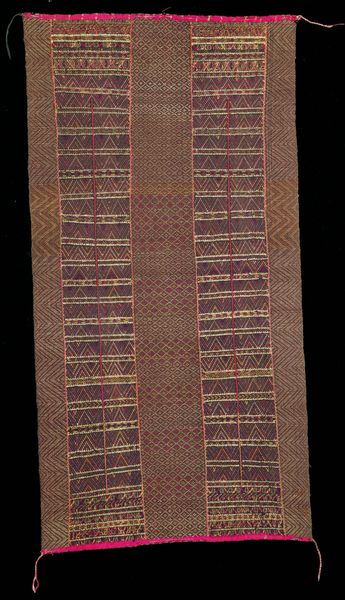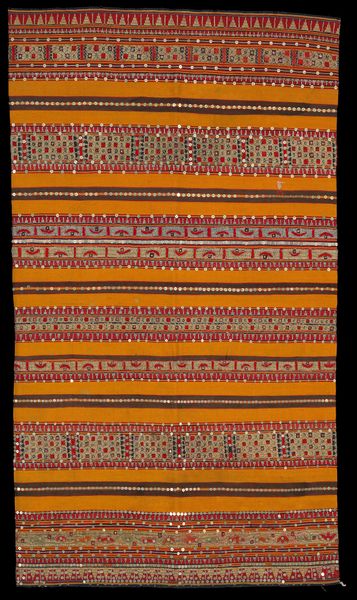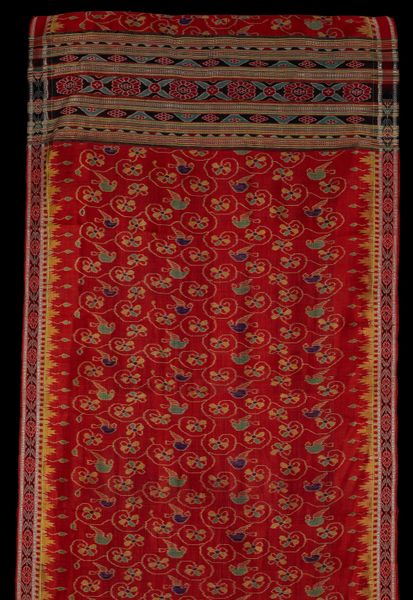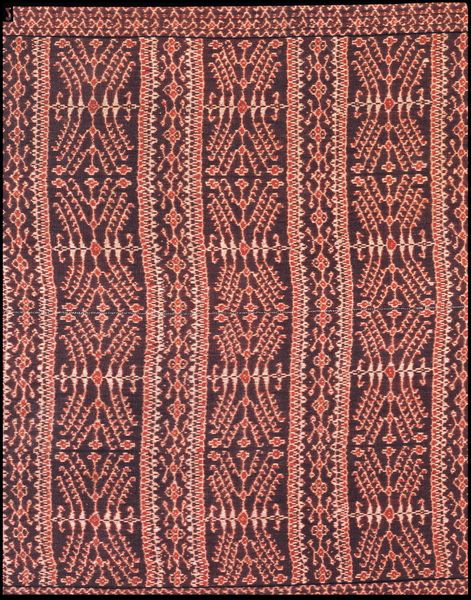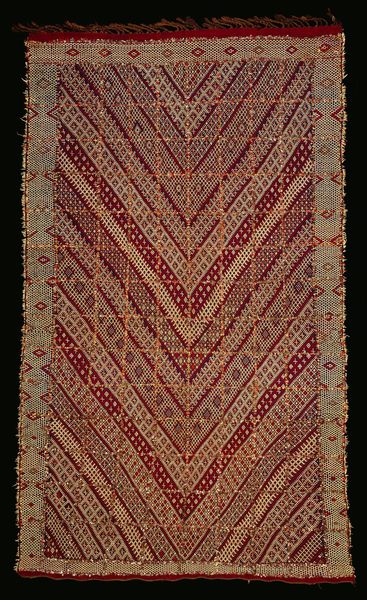
weaving, textile
#
pattern heavy
#
naturalistic pattern
#
weaving
#
textile
#
geometric pattern
#
abstract pattern
#
organic pattern
#
repetition of pattern
#
pattern repetition
#
textile design
#
layered pattern
#
combined pattern
Dimensions: 45 3/4 x 42 3/4 in. (116.21 x 108.6 cm) (excluding fringe and cording)
Copyright: Public Domain
Editor: This is a woven wool sash, titled "Ajemi," created anonymously sometime between 1895 and 1900. Looking at it, the combination of colors and repeating patterns feels surprisingly modern, despite its age. I’m intrigued by how such a seemingly simple object can be so captivating. What do you see in this piece? Curator: Oh, it's so much more than just a pretty pattern, isn't it? It whispers stories of cultural exchange, a little visual poem about how ideas and aesthetics travel. I see these vertical stripes, so structured, almost rigid, then softened by these endlessly looping organic motifs. The entire palette, dominated by these warm reddish hues – doesn't it evoke something earthy, sun-baked? Now, tell me, what about those repeated patterns, do they trigger anything specific for you? Editor: They remind me of textile designs, creating a sense of rhythm. The little floral-like shapes, enclosed in sort of curvilinear vines, repeat endlessly, creating almost a dizzying effect. Does that relate to the cultural context? Curator: Precisely! The rhythm and layered effects you are describing…they speak volumes. They can function as a reflection of a structured social environment balanced with fluid artistry and trade routes going every which way, a tangible piece of history expressed with wool and dye. So what do you make of it overall, now that we have untangled a few of its threads? Editor: It is no longer a captivating object but a quiet document! Thank you. I see how this sash connects us to history. I’m leaving with more questions than answers! Curator: Wonderful! That means it worked its magic. It beckoned us into its pattern, allowed us a momentary glimpse and then set us off again. The most a piece of art can ever hope for, I think.
Comments
No comments
Be the first to comment and join the conversation on the ultimate creative platform.
